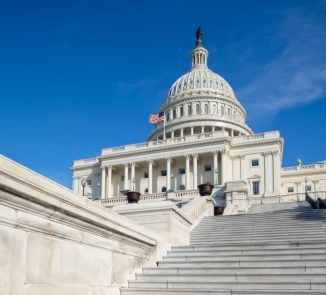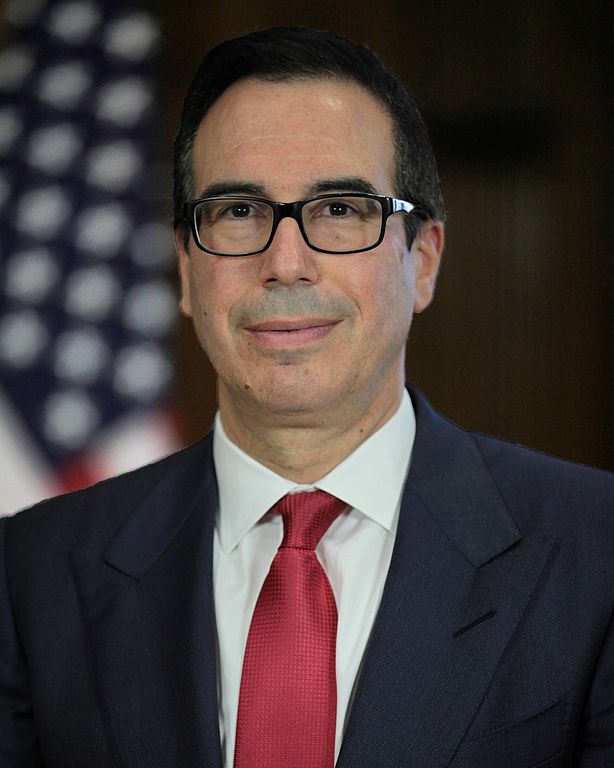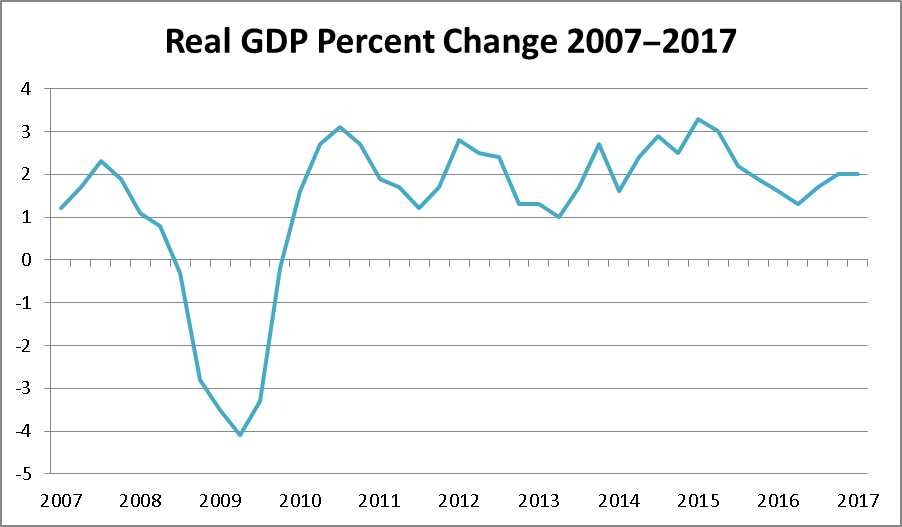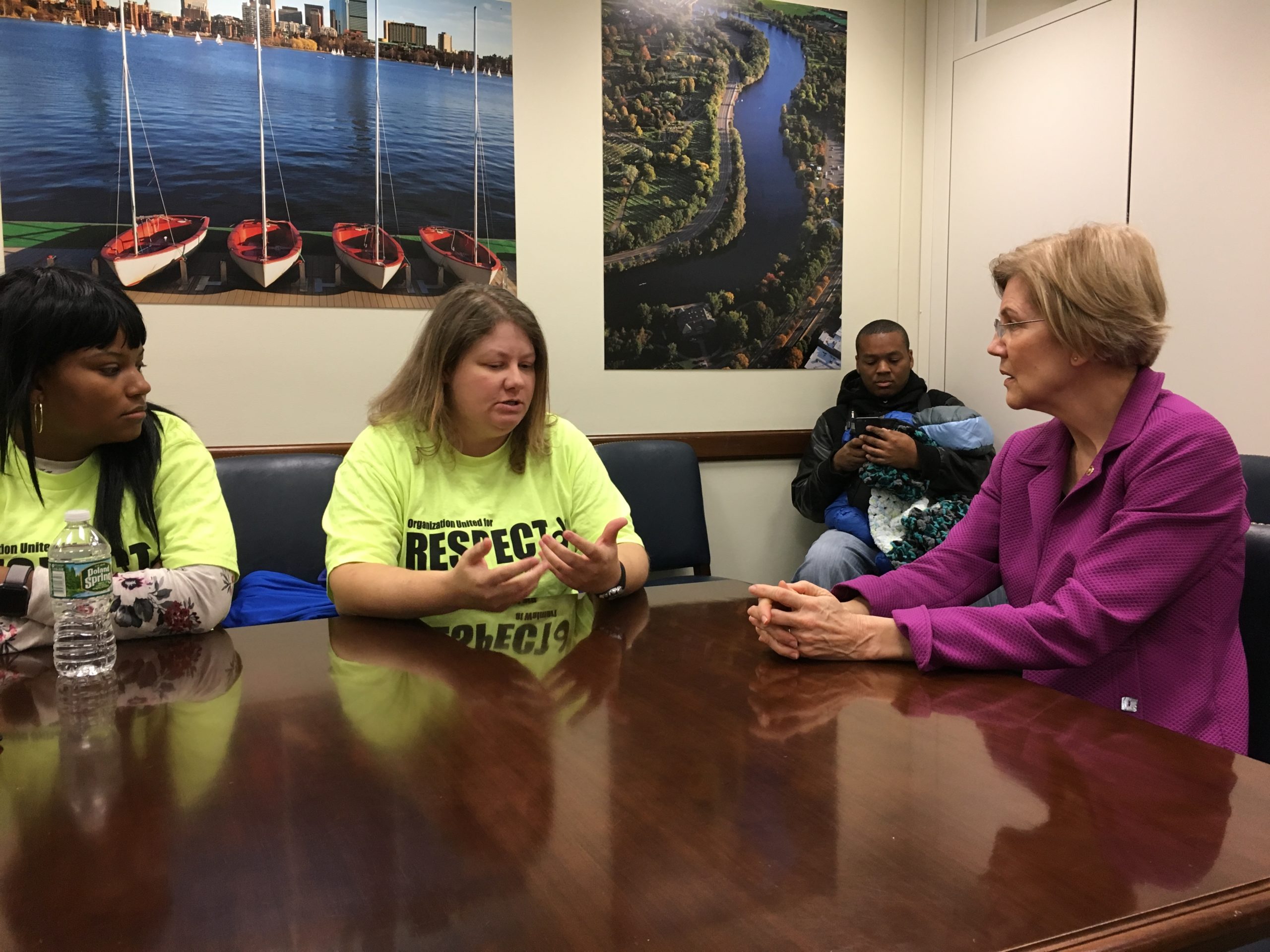Abortion rights, women of color, and LGBTQI+ people are under attack. Pledge to join us in fighting for gender justice.
Four Reasons McConnell’s COVID Corporate Immunity Proposal Harms Working People
 Last week, Senate Republicans introduced the Safe To Work Act (S. 4317) as part of their coronavirus relief package. But don’t be fooled by the title. The Senate is focused on protecting big business at the expense of people’s lives and livelihoods. The bill would allow businesses to escape consequences for failing to protect working people and the public from COVID-19 and would make it easier for businesses to violate important anti-discrimination and labor laws.
Last week, Senate Republicans introduced the Safe To Work Act (S. 4317) as part of their coronavirus relief package. But don’t be fooled by the title. The Senate is focused on protecting big business at the expense of people’s lives and livelihoods. The bill would allow businesses to escape consequences for failing to protect working people and the public from COVID-19 and would make it easier for businesses to violate important anti-discrimination and labor laws.
McConnell’s proposal would shift the risks of this pandemic onto people who can’t bear it.
Here are four things you should know about this bill:
- This bill endangers worker health and safety by effectively shielding businesses from accountability for COVID-19 exposure for five years. Workers on the front lines of the COVID-19 crisis have already become sick from a lack of basic health and safety protections, and faced retaliation or have been fired for demanding them. This bill makes it extremely difficult for workers to take legal action to challenge unsafe conditions and unlawful conduct for the next five years. It creates burdensome and complicated legal processes that individuals must follow to file a case or have it heard by a court. Even worse, the bill makes it possible for businesses to sue workers who send a letter to the corporation about possible legal violations. Businesses will have little incentive to provide safe working environments and individuals will be afraid to challenge them.
- It disproportionately harms women, people of color, and people with disabilities, who are the majority of workers in many essential jobs in this crisis. For example, 66% of grocery store cashiers/salespeople are women, and 59% of women working as home health and personal care aides are women of color. In the meatpacking industry, over 44% of workers are Latinx, roughly one quarter are Black, and among frontline meatpacking workers, more than half are immigrants. Most farmworkers are immigrants and people of color. And people with disabilities are more likely than those without a disability to work in essential jobs in industries like production (including food processing and water treatment plant operation), transportation, and material moving.
Many of these jobs aren’t unionized, pay low wages, and lack supports like access to health care and paid leave. This proposal leaves these workers more vulnerable to exposure and with fewer resources to fight back.
- The bill makes it easier for businesses to get away with violating key worker protections and antidiscrimination laws. This bill weakens important federal laws that prohibit discrimination at work and in public accommodations (like restaurants and hotels), wage and overtime laws, among others. This bill would protect businesses if they can show they merely “attempted to” comply with the law or relevant guidance—and would do so indefinitely.
For example, a retail worker with a disability who is at heightened risk of complications due to COVID-19 might request a reasonable accommodation under federal law, like working in the back of a store, rather than in a customer-facing capacity. This bill makes it easier for an employer to deny this request.
Our civil rights laws aren’t suggestions, and they’re even more important during this pandemic.
- The proposal prohibits government agencies from investigating or bringing enforcement actions against businesses for health and safety, wage and overtime, and antidiscrimination violations. The bill severely limits the ability of government agencies like the Equal Employment Opportunity Commission and the Occupational Safety and Health Administration to ensure that employers respect workers’ rights and follow the law.
Working people and the public need additional protections in these difficult and scary times, not additional barriers to staying safe and accessing justice.





